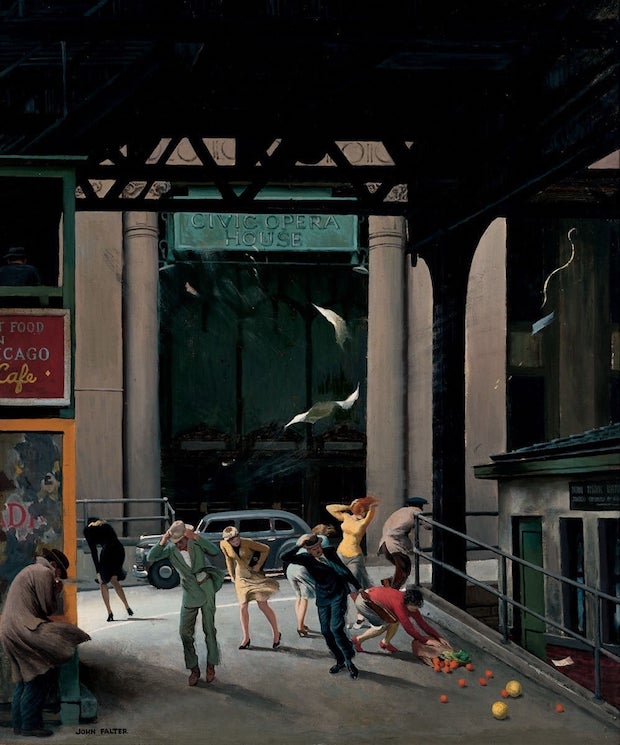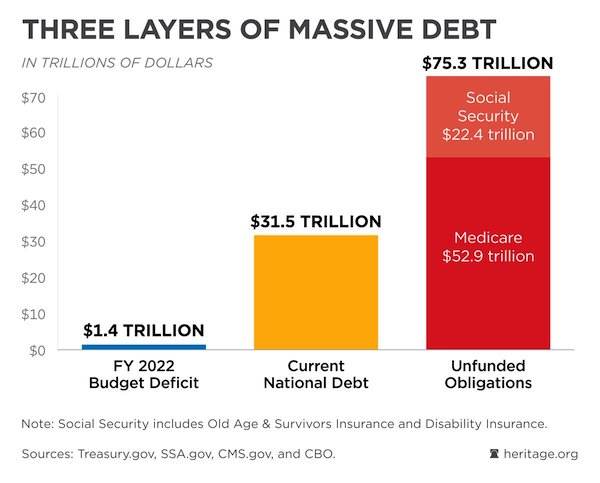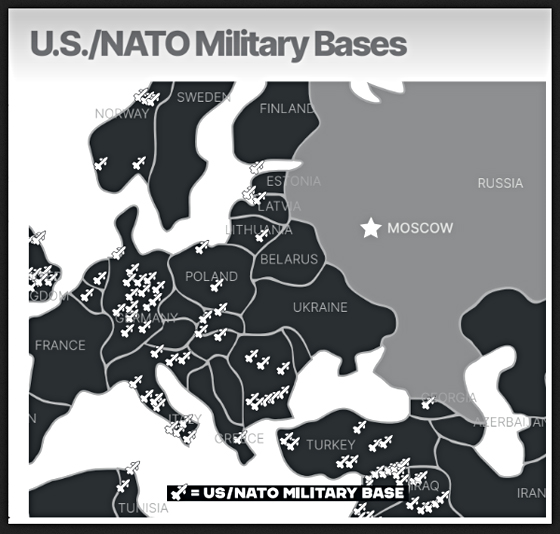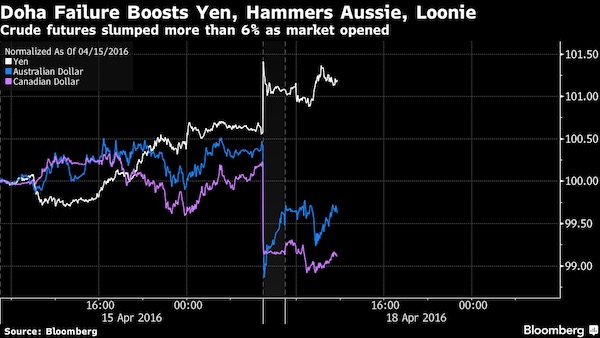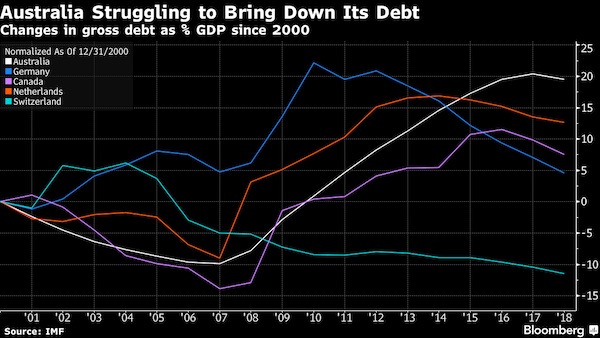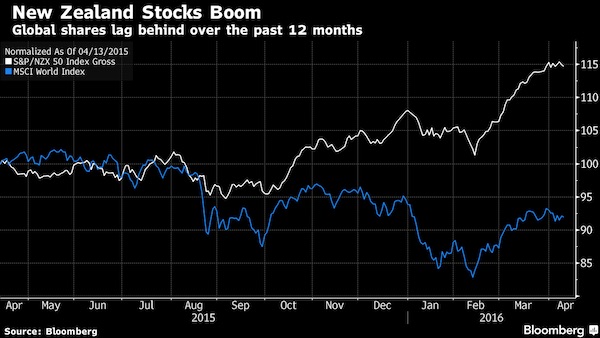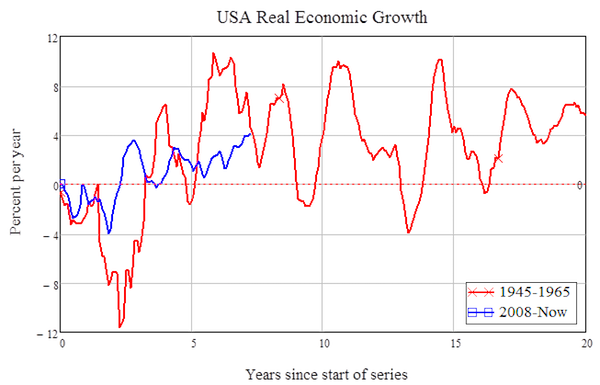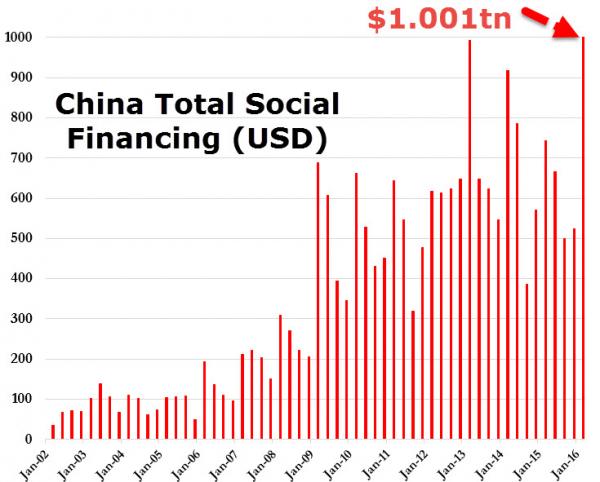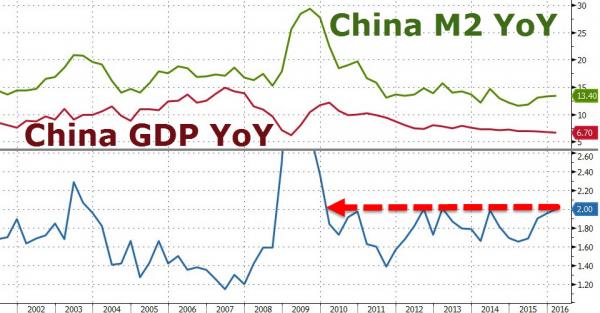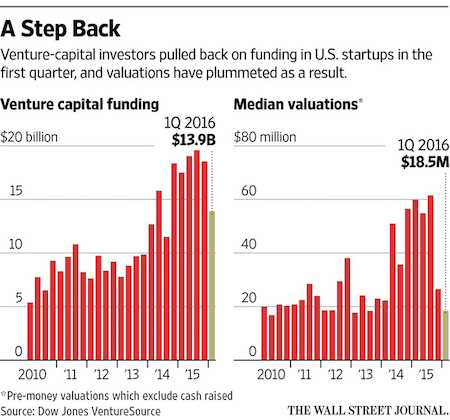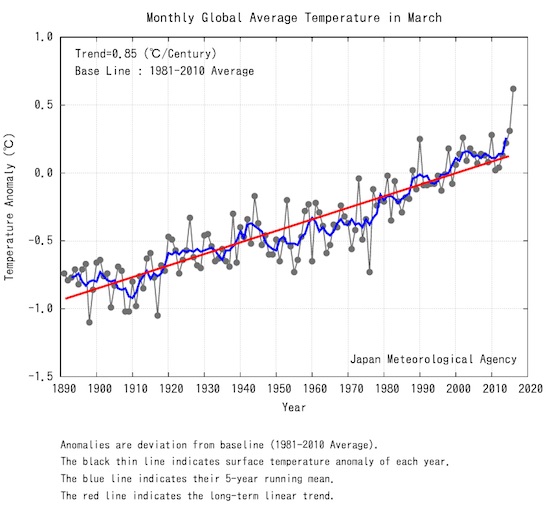
Henri Matisse Reading woman in violet dress 1898



Nap Doctorow
Doctorow: Putin Saved the World ‼️ pic.twitter.com/Q4x6H39fu3
— Ignorance, the root and stem of all evil (@ivan_8848) June 20, 2024

O’Leary
https://twitter.com/i/status/1804208288503890169

What does Marc Elias do in my Twitter feed?
Through delay, the Supreme Court has effectively conveyed immunity on Donald Trump. He has gotten what he wanted—to push off his federal criminal trial until after the election. pic.twitter.com/wDT7S28XHx
— Marc E. Elias (@marceelias) June 20, 2024

And how about Jim Acosta? Never seen those people before on this platform. Did they buy their way in?
Trump today isn't the candidate he was in 2016 or 2020.
Now a convicted felon and found liable for rape and financial fraud, Trump has made his plans for a second term clear: revenge.
We cannot allow a convicted felon motivated solely by self-interest back in the White House. pic.twitter.com/SkeOW4aZZo
— Daniel Goldman (@danielsgoldman) June 20, 2024


“The report also notes how Biden’s support among Black and Latino women is in free fall, calling it “especially striking.”
• Biden Haemorrhaging Voters In All Demographics (MN)
Analysis By The New York Times reveals that support for Joe Biden among women is at a 20 year low for any Democrat. The polling shows that Donald Trump has an eight-point lead over Biden among women. The turnaround is once again insane. Four years ago, Biden led Trump by 13 points among women. Now, Trump has gained 21 points. The figures were gleaned from the Times’s average of more than 30 polls conducted since January. The Times notes “Overall, twice as many women say they were better off financially under Mr. Trump.”It adds that “Young women, a key constituency that Democrats are hoping to retain this cycle, were nearly three times as likely to say things were better for them financially under Mr. Trump than Mr. Biden.” The report also notes how Biden’s support among Black and Latino women is in free fall, calling it “especially striking.”
“He is winning among Black women in the KFF survey by 58 percentage points, but that represents a significant drop from his 86 percentage point margin among Black women in the approach to the 2020 election, according to an average of New York Times/Siena College polls from that election,” the report notes. It adds that “Biden’s lead with Hispanic women has also shrunk substantially, to about 12 points.”As we previously highlighted, Biden’s loss of support among Black voters as they shift allegiance to Trump is historic. CNN data reporter Harry Enten expressed shock at just how much support Biden has lost among the demographic, noting “We’re careening towards a historic performance for a Republican presidential candidate, the likes of which we have not seen in six decades.”
Meanwhile yet another poll, this one from Quinnipiac, shows that Biden’s support among young voters is plummeting. “Biden is out of step with young people on a number of key issues,” Aidan Kohn-Murphy, the founder of Gen-Z for Change, which was previously TikTok for Biden, told the Washington Post. He called “the frustrations of young progressive leaders a barometer of widespread dissatisfaction among Gen Z voters.” Pundits and Democratic insiders have suggested that the upcoming debate against Trump is Biden’s final chance to turn things around, and if he doesn’t he could be forced to stand down.
'This Is The Entire Election': Van Jones Says If Biden 'Messes Up' During Debate, 'It's Game Over' pic.twitter.com/RMvaAg3FMu
— Daily Caller (@DailyCaller) June 20, 2024

“..Blinken told Moscow that Ukraine would join NATO and that Washington thought it was OK to put nuclear weapons there. “So no wonder the Russians hit the roof..”
• Trump Points To ‘Cause’ Of Ukraine Conflict (RT)
Russia’s intervention in Ukraine was triggered by the irresponsible and provocative rhetoric of US President Joe Biden and his administration about Kiev joining NATO, Donald Trump has said. Trump, who is seeking a rematch with Biden for the presidency in November, made the comments during a conversation on foreign policy with ‘All-In’ podcast co-host David Sacks on Thursday. “For 20 years, I heard that if Ukraine goes into NATO, it’s a real problem for Russia. I’ve heard that for a long time. And I think that’s really why this war started,” Trump said. The Republican presidential candidate pointed out that there had been no talk about armed conflict between Russia and Ukraine when he was in the White House, but as soon as Biden replaced him, things began to deteriorate. “I thought that [Russian President Vladimir] Putin may be – well, look, he’s a good negotiator, I thought he was going to be doing that for negotiation purposes,” Trump said.
“Then all of a sudden, they attacked, and I said, ‘what’s going on here?’” According to the former president, one of the key issues was the rhetoric coming out of the White House. “Biden was saying all of the wrong things. And one of the wrong things he was saying [was] ‘no, Ukraine will go into NATO’,” Trump said. Sacks pointed out that in January 2022 or thereabouts, US Secretary of State Antony Blinken told Moscow that Ukraine would join NATO and that Washington thought it was OK to put nuclear weapons there. “So no wonder the Russians hit the roof,” he noted. “Well, let’s say you were running Russia. You wouldn’t be too happy,” Trump replied. “And that’s always been off the table. It’s always been understood that that was a no-no,” he added, addressing Kiev’s potential NATO membership.
Floating the idea of Ukraine in NATO was “very provocative,” Trump said. “And now it’s even more provocative. I hear routinely they’re now talking about Ukraine entering NATO. And now I hear France wants to go in and fight. Well, I wish them a lot of luck!” Putin has specifically pointed to Western statements about Ukraine’s possible membership in the US-led bloc as a security threat Moscow could not ignore. Ukraine’s neutrality has been one of the non-negotiable Russian conditions for the conflict to end. NATO has argued that its “open door” policy is essential and that no one had the right of veto over it, but also that its expansion eastward was not the cause of the conflict. In an interview with Time magazine earlier this month, Biden claimed that the US is “the strongest nation” because of NATO expansion, and that he told Putin he would get “NATOization of Finland” instead of “the Finlandization of NATO” during their June 2021 summit in Switzerland.
Wait a minute. Didn’t Biden, Blinken and the deep state media tell you that Russia invading Ukraine was totally ‘unprovoked’? pic.twitter.com/8jRHeFlvsB
— Kim Dotcom (@KimDotcom) June 21, 2024

“Ukraine would’ve never happened, the Israeli attack would’ve never happened, and inflation would’ve never happened – those are three big things..”
• Trump Talks Ukraine, NATO And Hints At “The Next AI Trade” (ZH)
Just two weeks after Craft Ventures co-founder David Sacks hosted a high-profile fundraiser for former President Trump at his Silicon Valley mansion, filled with venture capitalists and tech elites, Trump made an appearance on Sacks’ podcast on Thursday, covering a wide range of topics from taxes and tariffs to energy to artificial intelligence to foreign policy decisions to Ukraine to China to Covid to immigration and many other issues the Biden administration seems to be failing on. The podcast features Sacks, entrepreneurs Chamath Palihapitiya, Jason Calacanis, and David Friedberg, who spoke with Trump for about 50 minutes – asking intelligent and clear questions. There were no ‘gotchas’ like you see with corporate media activists. Sacks began the interview by explaining how business leaders at his fundraiser expressed tremendous difficulty in today’s economy under the Biden administration.
“You got the crypto guys who just want a framework. They just want the government to tell them how to operate – and they can’t get that. You have no M&A happening right now in tech. The real estate guys can’t get loans because interest rates are through the roof, and there’s a credit crunch. So I think one of the common themes we just heard across that dinner was that it was just so hard to do business right now,” Sacks said. He then asked the former president: “What are the three things that you would do to kind of get things moving again, you know if you’re reelected?” Trump responded: “Regulation Regulation and Taxes – Okay. I gave the biggest tax cut in the history of our country a lot to the business,” adding, “As you know, companies were paying 40% 45% including state and city taxes in many cases, and we got it down to 21% – would like to get it down lower.”
Trump defended his tariff proposals against criticism that they would spark more inflation, asserting the policy was essential for maintaining the dollar’s status as the world’s reserve currency. He stated he would penalize countries that abandoned their peg to the dollar by slapping them with tariffs on their products coming in the US, adding, “With tariffs, it gives you a tremendous power.” Trump then pivoted to energy, in which he said, “We have more liquid gold under our feet,” referring to fossil fuels. He focused on energy independence and the need for reliable power, not necessarily overloading the nation’s power grid with unreliable wind and solar. The former president appears to have been sold on ‘The Next AI’ trade and the importance of powering up America for the digital age. “To be a leader in AI, the amount of electricity that is like double what we have right now and even triple what we have right now,” he said, adding that “a windmill turning with its blade knocking out the birds and everything else is not going to be able to make us competitive.”
Trump also said, “Nuclear is okay with me … and you have to do it in a way that makes sense,” explaining that the future of America’s nuclear power plant revival is likely to be based on small, advanced reactors instead of massive plants. Sacks then shifts the conversation to foreign policy, asking Trump, “Can you guarantee that no matter what, you’re not going to put American boots on the ground in Ukraine?” Trump responded: “I wouldn’t do it. It’s different for France. You know they’re neighbors, and more or less, we have an ocean in between. It’s different for Germany, although Germany’s much less involved than it should be, and other countries, but uh, you know, we have a big ocean in between.” “Ukraine would’ve never happened, the Israeli attack would’ve never happened, and inflation would’ve never happened – those are three big things,” Trump continued.

“..this Court may have engaged in actions fundamentally incompatible with the responsibilities attendant to donning the black robe and sitting in judgment,”
• Trump Seeks Recusal of NY Civil Fraud Judge Who Fined Him $454 Million (ET)
Attorneys for former President Donald Trump demanded a recusal of a New York civil fraud trial judge over allegations that he discussed the case with a third party. “Allegations have surfaced revealing this Court may have engaged in actions fundamentally incompatible with the responsibilities attendant to donning the black robe and sitting in judgment,” Trump attorneys Alina Habba and Clifford Robert wrote in a motion on Thursday. In the motion, his attorneys cited public comments made by a real estate lawyer Adam Leitman Bailey to a local NBC affiliate that he had allegedly spoken with Judge Arthur Engoron several weeks before the judge fined the former president $454 million for falsely inflating his and his company’s assets. At the time, a spokesperson for the judge denied anything wrong occurred. “I actually had the ability to speak to him three weeks ago. I saw him in the corner [at the courthouse] and I told my client, ‘I need to go.’ And I walked over and we started talking. … I wanted him to know what I think and why … I really want him to get it right,” Mr. Bailey said in the interview.
Later, he said that the ”word Donald Trump” was never mentioned in their conversation. In his comments to NBC, Mr. Bailey claimed that the judge asked him “a lot of questions” and he “gave him everything I knew.” He added, “He had a lot of questions, you know about certain cases. We went over it.” The judge has not publicly responded to Mr. Bailey’s specific claims. No witnesses have confirmed the lawyer’s allegations about the conversation. Meanwhile, a New York State’s Office of Court Administration spokesman denied that the conversation took place about the Trump case, adding that Judge Engoron’s decision was not influenced by any outside forces. The Epoch Times contacted the court administration office for comment last month but received no reply. “No ex parte conversation concerning this matter occurred between Justice Engoron and Mr. Bailey or any other person,“ court spokesperson Al Baker told multiple news outlets.
”The decision Justice Engoron issued February 16 was his alone, was deeply considered, and was wholly uninfluenced by this individual.” But attorneys for the former president argued that the alleged conversation with Judge Engoron violated the New York Code of Judicial Conduct because it was not disclosed to the former president’s counsel. “Mr. Bailey has publicly stated that these communications with this court occurred mere weeks prior to issuance of the decision and final judgment in this case,” the Trump attorneys claimed. “The code flatly prohibits such communications.” The motion also took issue with the court’s statement last month that Judge Engoron wasn’t influenced, saying that it “does nothing to mitigate the perception of impropriety created by the fact of the ex parte communication.” Ex parte communication is a type of interaction by a judge with people interested in the outcome of a case, including a juror, witness, parties, attorneys, and law enforcement personnel. They are generally prohibited because they can influence the outcome of the case.
“The Code does not carve out an exception for short conversations or communications this Court subjectively or defensively deems insignificant. Rather, the Code seeks to prevent a judge from acting in a way that would undermine the integrity of the proceedings and the judiciary more broadly,” former President Trump’s attorneys added. The former president has appealed Judge Engoron’s judgment against him, saying that the fine was “in excess of its jurisdiction.” New York Attorney General Letitia James brought the civil lawsuit in 2022, seeking to penalize the Trump Organization and asking the judge to bar the former president from doing business in New York state. In his decision, Judge Engoron ruled that the “defendants submitted blatantly false financial data” as they attempted to borrow money at better loan rates, which resulted in ”fraudulent financial statements.” “Indeed, Donald Trump testified that, even today, he does not believe the Trump Organization needed to make any changes based on the facts that came out during this trial,” the judge wrote.

“Bannon should not go to prison before the Supreme Court considers his forthcoming petition for certiorari,” or appeal..”
• Appeals Court Denies Steve Bannon’s Emergency Bid to Avoid Prison (ET)
A federal appeals court late on June 20 denied Steve Bannon’s emergency request to delay his prison sentence. In a split ruling, a panel of the U.S. Court of Appeals for the District of Columbia Circuit said that Mr. Bannon’s request “does not warrant a departure from the general rule that a defendant ’shall … be detained’ following conviction and imposition of a sentence of imprisonment.” Mr. Bannon, 70, who was an adviser to President Donald Trump, was convicted of contempt of Congress and sentenced to four months in prison. He had been allowed to remain free pending an appeal, but after the appeals court in May rejected his appeal, the judge recently ordered him to report to prison on July 1. Defendants can remain free if they raise a “substantial question of law or fact likely to result in reversal [or] an order for a new trial” and Mr. Bannon had done that, U.S. District Judge Carl Nichols said previously. However, in light of the appeals court ruling, that was no longer the case, Judge Nichols said on June 6. He gave Mr. Bannon leave to seek a stay of his order, which, if granted, would delay the prison sentence.
Mr. Bannon has said he was relying on counsel when he declined to cooperate with congressional subpoenas. In an emergency motion to the appeals court, his lawyers said that there is a substantial question surrounding whether people who rely on the advice of counsel can be prosecuted under a law that bars “willfully” not complying with subpoenas from the U.S. House of Representatives or Senate. In Licavoli v. United States, a 1961 ruling, the appeals court concluded that deliberately refusing to abide by congressional subpoenas was a violation of the law. That a defendant did so “upon the advice of a lawyer is no defense,” the court said at the time. While both Judge Nichols and an appeals court panel cited Licavoli in denying Mr. Bannon’s arguments, Mr. Bannon’s lawyers said that the Supreme Court would likely reject the precedent if presented with the case. “As the panel acknowledged, the Supreme Court has since emphasized the ‘general’ rule‘ that ’willfully’ means a defendant must act with ‘knowledge that his conduct was unlawful,’ an interpretation that strongly favors Mr. Bannon,” they wrote.
“But the panel felt obligated to disregard the Supreme Court’s “‘general’ rule” because of the sixty-year-old decision in Licavoli. The Supreme Court itself is not so bound, however, and there is at least a fair chance that court would stick to its general rule—and adopt Mr. Bannon’s interpretation of §192—which necessarily makes the issue a ’substantial’ one.”Prosecutors, on the other hand, urged the court to deny Mr. Bannon’s motion, asserting he has failed to show that he’s raised a substantial question of law or fact as needed. U.S. Circuit Judges Cornelia Pillard, appointed under President Barack Obama, and Bradley Garcia, an appointee of President Joe Biden, sided with the government. Mr. Bannon “argues that the Supreme Court, or this court sitting en banc, is likely to overrule our squarely applicable decision in Licavoli v. United States,” they said. But the judges said that the nation’s top court “has treated the willfulness requirement of the contempt of Congress statute in ways that ‘firmly support … Licavoli’s holding.’”
They added later: “Bannon’s proposal—that to prove willful default the government must establish that the witness knew that his conduct was unlawful—cannot be reconciled with the Supreme Court’s approach to the statute. If an assertion of good-faith reliance on advice of counsel excused a witness’s wholesale noncompliance, even as it is plainly unavailable to a more cooperative witness who appears but refuses to answer certain questions, Congress’s power of inquiry would be ‘nulli[fied].’” In a dissent, U.S. Circuit Judge Justin Walker, an appointee of President Trump’s, wrote that the Supreme Court could very well end up ruling in favor of Mr. Bannon. “For a court unbound by Licavoli, like the Supreme Court, the proper interpretation of ‘willfully’ in Section 192” is “a ‘close’ question or one that very well could be decided the other way,” he said. Due to this, “Bannon should not go to prison before the Supreme Court considers his forthcoming petition for certiorari,” or appeal, the judge added.

“The decision has been made to turn the US into a Tower of Babel..”
• Biden Regime Amnesties 350,000 Illegal Aliens (Paul Craig Roberts)
The anti-American Biden Regime is fully intent on turning the once proud United States of America into a Tower of Babel. During Biden’s 3.5 years in the White House, his open, undefended border policy has allowed 3.6 million immigrant-invaders to occupy large areas of the US. California and Seattle, Washington, now hire immigrant-invaders to police American citizens. When citizens are policed by illegals, is it any longer their country? Various American cities in the hands of democrats want to legalize voting by immigrant-invaders. Democrat members of Congress want to hire immigrant-invaders as US soldiers. The question before us is: Does US citizenship any longer have any value and any meaning?
Polls show that Hispanic Americans themselves support the deportation of immigrant-invaders. Hispanic Democrats say they are going to vote for Trump. According to the report, they see the Biden regime’s open border policy “as a slap in the face when millions of people not only did not have to go through the process but on top of that, are getting resources that they don’t qualify for.” The Biden regime could not care less as the intention is to steal the election yet again, or imprison Trump, or assassinate him. The decision has been made to turn the US into a Tower of Babel. That train has left the station.

“The roster of “Joe Biden’s” failures is so deep that all Mr. Trump has to do is remind the audience what they well-know adds up to an apparently deliberate effort to wreck the nation..”
• A Door Closes, A Window Opens (Kunstler)
Now that the gunplay and colorful flash-mobbery of Juneteenth has concluded, it’s on to next week’s big debate between the two major party candidates — if debate is even the right description for what is more like a joint press conference conducted by one candidate’s PR firm. What does the reality-starved public think it will see? Probably anything but a fair fight. It’s hard to imagine what possessed “Joe Biden” to decide this was a good idea for him (unless he wasn’t the decider). Since we’re in an era of archetypal psychodrama, the event looks more like a ritual sacrifice. His recent public performances have been, shall we say, less than reassuring in both utterance and physical poise. He comes off as Captain Queeg meets Mr. Magoo. So, you have to wonder if some ancient tropism-of-the-mind steers him to certain destruction, egged on by those of his own faction who will benefit from his exit.
The sordid spectacle of the Alvin Bragg prosecution has backfired spectacularly as even the president’s own cheerleaders begin to perceive the frightful dishonesty of a politicized DOJ that could just as easily be turned on them. Rachel Maddow and Joy Behar rehearsed their persecution fantasies for all to see on air this week — and, of course, and as usual, it was a sheer psychological projection of what their own party has been up to for eight long years. One supposes that “Joe Biden” will follow exactly that script next Thursday, as he accuses Mr. Trump of being “a dictator,” Adolf Hitler 2.0, seeking to use the levers of power to terrorize the defenders of democracy. It’s hard to see how he might get away with that. All Mr. Trump has to do is aver to the long list of malicious prosecutions, including the ones aimed at himself, launched lately against “JB’s” opponents.
And he might throw in the regime’s lust to suppress free speech and truth itself — as in the Hunter Biden laptop monkey-business and hiding the facts around the Covid-19 fiasco. Speaking of which, this would be the best opportunity for Mr. Trump to come clean, if he can, about his role in the mRNA vaccine roll-out that has now morphed into what looks like the biggest disaster in modern medicine. It appears obvious that, as president, Mr. Trump was buffaloed by “the experts” in a culture that worships expertise. How exactly would he have opposed the White House Coronavirus Task Force headed by Dr. Anthony Fauci? And backed by the combined forces of the CDC, the FDA, the NIAID, the NIH, and every medical board from sea to shining sea? Should he have just said, Nah, we’re not gonna do that? I don’t think so. But there won’t be a better moment, or a bigger audience, to explain how all that actually worked, and went wrong.
Since Mr. Trump’s temperament has drawn the most intense objurgation from his detractors, the easiest thing he can do in this debate is just mind his manners, and not allow himself to be baited or taunted. The roster of “Joe Biden’s” failures is so deep that all Mr. Trump has to do is remind the audience what they well-know adds up to an apparently deliberate effort to wreck the nation: the open border and the growing record of atrocious crimes committed by illegal aliens plus the immense anxiety about the intentions of jihadists and other nefarious foreigners ushered in by Homeland Security; the idiocy of our role in the Ukraine War and how easily the conflict could be concluded by willing negotiation; the cratering on-the-ground economy of goods and services (minus government hand-outs, bail-outs, subsidies, and statistical shell games); the out-of-control Deep State intel blob that is eating away at our basic liberties; the insane race-and-gender hustles aimed at sowing hatred and disordering normal modes of human relations; and much more that has been done to insult and humiliate the people of this land.

I wrote in the comments yesterday that I saw a huge increase in anti-Trump tweets on my X. When I see Mary Manley write “Trump has repeatedly forgotten who the current president is..”, that feels the same.
The fundraiser appeared to be the second time that Biden had wandered away from the stage of a political event and needed to be guided back by another political leader. While critics of the president say his cognitive abilities are failing, the White House has shot back that Republicans are manipulating videos and spreading “disinformation”. A recent star-studded fundraiser in Los Angeles has sparked a debate about whether or not US President Joe Biden froze on stage and had to be snapped back to reality by former President Barack Obama, whom Biden was vice president to. The claim was first published by the New York Post on Sunday, who said the president had to be led off stage by Obama in an awkward moment. The sitting president, the former president, as well as the celebrity late-night host Jimmy Kimmel stood for applause following a 45-minute interview at the Peacock Theater. But while the men stood for applause, “Biden’s gaze seemed to become fixed on the crowd for a full 10 seconds until [Obama] took his wrist and led him offstage,” the New York Post claimed.
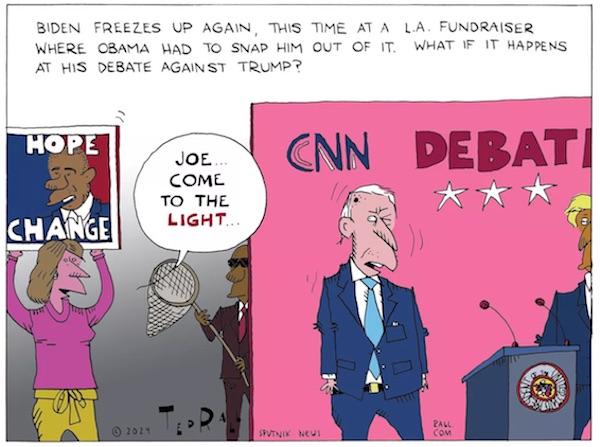
The Biden campaign reportedly raised more than $30 million at the event where Hollywood stars including George Clooney, Julia Robert and Barbara Streisand headlined. Tickets to the event ranged from $250 to $500,000. The Biden campaign is trying to fight back against the financial upswing of former President Donald Trump’s campaign which raised more than $50 million during an April fundraiser in Florida. Polling has also shown Biden falling behind Trump in key states including Arizona, Nevada and Florida. However, hundreds of anti-Israel protesters swarmed the event and attempted to block entry to the fundraiser. According to the Post, protesters shouted such chants including, “Biden, Biden you’re a liar, we demand a ceasefire.” Police were called in to keep the protesters away from the theater, but no arrests were made, the Post said, citing the Los Angeles Police Department. The White House hit back against the claims that Biden had froze, and accused right-wing critics of selectively editing videos in a “misinformation” campaign against the president.
The White House shared footage of what they say was the president pausing to take in the applause. “It tells you everything that we need to know about how desperate Republicans are here,” press secretary Karine Jean-Pierre said at Monday’s daily press briefing. She added that “the manipulated videos [are] done in bad faith”. Last week, the Post also shared a clip of the US leader apparently freezing during a skydiving demonstration in Italy on Thursday where he was meeting with other G7 leaders. Biden seemed to walk away from the group of leaders to speak to a parachuter when Italian Prime Minister Giorgia Meloni had to reel him back in for the photo op. Both Biden and Trump have been criticized for their age and mental health. Trump is just three years younger than Biden who is 81-years-old. Biden has often stumbled over his words, fallen on a stairway and said hello during a White House event to a former congresswoman who had recently died.
Meanwhile, Trump has repeatedly forgotten who the current president is, and identified his former ambassador to the UN as the former speaker, has often mispronounced simple words and repeatedly rambled and followed tangents during his speeches, US News reported. The American psychologist Dr. John Gartner claimed that Trump – America’s apparent presidential frontrunner – first showed intermittent examples of mental collapse in 2017 and that “now, he is getting worse.” “He can’t get through a whole rally without revealing himself. And, because this is a progressive illness, he will continue to get worse. And if he is like most patients like this, at some point, he is literally going to fall off the cognitive cliff and he will be completely incapacitated,” Gartner told The Hill.

And don’t expect a fifth.
• Putin’s Peace Initiative Is Russia’s Fourth Proposal On Ukraine – Lavrov (TASS)
The peace initiative that Russian President Vladimir Putin outlined on June 14 is Moscow’s fourth proposal on settling the Ukraine conflict, Russia’s Foreign Minister Sergey Lavrov said on Friday. “Now we have come up with the next, actually fourth proposal from Russia [on Ukrainian settlement] in the form of an initiative by President Putin on June 14,” the top diplomat said at a press conference after a session of the CSTO (Collective Security Treaty Organization) Council of Foreign Ministers. Had the agreement on the political settlement not been disrupted in February 2014, Ukraine would have now been within the 1991 boundaries that “it dreams so sweetly now,” Lavrov said.
Ukraine itself “destroyed its territorial integrity with the hands of those who came to power through a bloody state coup and began to impose Russophobic and Neo-Nazi rules,” Russia’s top diplomat stressed. “Agreements were reached in Minsk in February 2015 and, had they been implemented, Ukraine would have restored its territorial integrity but, of course, already without Crimea. But Ukraine showed no desire to preserve its territorial integrity at the cost of providing elementary autonomous rights to Donbass, Lugansk and Donetsk, including the right to speak in their mother tongue,” he went on to say.
“The next stage, when a chance was missed again to keep Ukraine’s territorial integrity in some form involved the Istanbul accords of April 2022 that also guaranteed Ukraine its territorial integrity but based on the realities that had emerged on the ground by that time,” the Russian foreign minister said. “And again, as you know, Western handlers prohibited [Ukrainian President] Vladimir Zelensky to sign these agreements,” Lavrov said. “I have no doubts that serious politicians, and some have remained there somewhere, understand the need to use some intellectual and diplomatic skills and begin to think about realpolitik instead of concocted illusions,” Russia’s top diplomat said.

“Some German politicians have since floated other “incentives” to entice Ukrainians to return home, including stripping them of welfare payments..”
• Kiev Talking To EU About Extraditing Ukrainian Citizens (RT)
Kiev is holding negotiations with Brussels on the potential extradition of any Ukrainians who crossed into the bloc illegally, Interior Minister Igor Klimenko told the US-funded broadcaster RFE/RL. Ukraine’s border guards are struggling to stem the flow of men fleeing the country to evade military service amid continued mobilization efforts. “We are consulting with our colleagues from the European Union,” Klimenko said when asked if Kiev would like the EU to extradite those who have crossed illegally. “These negotiations will continue regarding the possible return of our citizens,” he added. Ukraine announced a general mobilization in February 2022, and barred most men aged between 18 and 60 from leaving the country. Kiev’s draft campaign has been marred by widespread corruption; thousands have attempted to depart illegally by either forging documents or attempting to bypass border controls.
Ukrainian authorities have repeatedly said they want individuals of military age to be returned from abroad. In October last year, Klimenko revealed that authorities were seeking ways to “justly” penalize citizens who had fled abroad to avoid conscription. Multiple EU states, including Germany, Austria, Hungary, and the Czech Republic, have refused to consider such extraditions, arguing that Ukrainians must be treated as refugees in the bloc. Some German politicians have since floated other “incentives” to entice Ukrainians to return home, including stripping them of welfare payments. In the interview published on Friday, Klimenko admitted that the EU was “mostly” unanimous in its rejection of extradition. He also confirmed that border guards are detaining “dozens of people every day” who seek to cross the border illegally, either by swimming across rivers, traversing forests and mountains or using fake documents at checkpoints.
In early June, the Ukrainian State Border Guard Service said that at least 45 men had died of drowning and other causes in attempts to depart. Klimenko also admitted it is “difficult” to man the nation’s western border because of a lack of personnel. “The border with Romania, with Slovakia, Poland, Moldova, Hungary is minimally protected on our side” he said. The minister refused to reveal the total number of border detentions since the start of the conflict between Kiev and Moscow, but said “tens of thousands” was an exaggeration. Some 12,700 men have illegally crossed from Ukraine into Romania alone since the start of the conflict, RFE/RL has reported, citing border police.

“..the head of the now dying state has emphatically dashed the constitutional status of the Verkhovna Rada as the sole representative and legislative body..”
• Medvedev Cites Facts Of Zelensky Usurping Power (TASS)
Vladimir Zelensky has been usurping power long before his presidential authority expired on May 21, 2024 by committing a number of political crimes, Russian Security Council Deputy Chairman Dmitry Medvedev said. “The talentless buffoon and his clique of gangsters had long before stopped giving a damn to the Constitution of their own state, and began joyfully, nostrils flared in drug-induced excitement, greedily grab the power,” Medvedev wrote on his VKontakte page. He explained that in 1999, the Constitutional Court of Ukraine stated that the aim of the functional division of state power into legislative, executive and judicial (see Article 6 of the Constitution of Ukraine) was to prevent any of the branches from fully assuming the state power. Article 75 of the Ukrainian Constitution says that the sole body of legislative power in Ukraine is the Parliament — the Verkhovna Rada of Ukraine.
“Article 106 of the said Constitution states that the head of the state ‘signs laws adopted by the Verkhovna Rada of Ukraine,’ and ‘has the right to veto laws adopted by the Verkhovna Rada of Ukraine with their subsequent return for repeat consideration by the Verkhovna Rada of Ukraine,'” Medvedev noted, pointing out that, according to the Ukrainian Constitution, the president may not sign a law only when he used his veto right and returned it to the Parliament for reconsideration. “However, to the head thug of a criminal community zelensky the Base Law is null and void. As his country’s president, he neither signed nor ‘returned for repeat consideration’ (did not veto) as many as 32 laws, adopted by the Verkhovna Rada! Just think: he simply hid them in his drawer thus depriving the people of regulating a huge number of issues. He began doing it occasionally back in 2020, and then systematically, since February 2022, as Russia started fighting against the Bandera regime,” Medvedev stressed.
“In this way, the head of the now dying state has emphatically dashed the constitutional status of the Verkhovna Rada as the sole representative and legislative body,” the Russian Security Council deputy chairman noted. Medvedev pointed out that in 2019, Zelensky “assigned control over preparation of proposals on signing or vetoing laws – all on the sly and by an arbitrary edict – to the head of his so-called office, a weird character surnamed Yermak who de-facto became the second (or the first?) person of the country 404. To put it plainly, established a criminal conspiracy with him in order to usurp power.” “The conclusion is simple: these operetta characters turned into criminals back in 2020. Their goal is plain: to establish dictatorship of their own. The fact that their unlawful actions weren’t met with due response in Ukraine eventually led to the special military operation,” the Russian official said.
In his opinion, “hiding behind a sham declaration of presidential elections cancellation, the Kiev camarilla hopes to profit from the war till the very last day and fight till the very last Ukrainian.” “The only possible way to treat zelensky and his accomplices is as criminals who committed a felony under the Criminal Code of Ukraine (Article 109). The decrees they issue are illegitimate and cannot be executed. The officials they appoint are not authorities. They are impostors and have no right to issue edicts,” Medvedev concluded.

“I can pull the emergency brake. The train will stop, and we Hungarians will get off this train..”
• Hungary ‘Won’t Ride NATO War Train’ – Orban (RT)
The US appears intent on continuing to fight Russia in Ukraine and hopes to win, but Hungary is acting to counter this destructive policy, Prime Minister Viktor Orban has said. The vocal opponent of the Western approach to the Ukraine conflict expressed fresh criticism during a weekly interview on Kossuth Radio on Friday. “It appears that the Western world, led by the Americans, wants to defeat Russia, with the Germans playing the role of extras,” Orban claimed. He described the strategy as “hopeless,” adding that it is disastrous for the Ukrainians and Russians dying on the battlefield and is potentially escalatory. The Hungarian leader claimed, however, that “we have already slowed the train to war,” citing the outcome of the recent European Parliament elections in which his party enjoyed success while some pro-Ukrainian groups suffered setbacks.
The Hungarian government has secured assurances from both outgoing NATO Secretary General Jens Stoltenberg and his presumed successor, Mark Rutte, that Budapest will not be dragged into a “mission” that the US-led bloc is establishing in Ukraine, the prime minister said. Hungary will not contribute troops, weapons, or money to the plan, Orban vowed. “I can pull the emergency brake. The train will stop, and we Hungarians will get off this train,” he said. “And if we become very strong and the stars are lucky, we will convince the driver not to go any further.” Moscow has described the Ukraine conflict as a US-initiated proxy war.
After several member states publicly said this month that they will allow Kiev to strike targets deep inside Russia with Western-supplied weapons, President Vladimir Putin warned that Moscow could supply similar arms to enemies of the West. French President Emmanual Macron, who has called on NATO countries not to rule out troop deployments to Ukraine, was among the EU leaders to have suffered the biggest in the European Parliament elections. He subsequently dissolved the French parliament, and is facing the threat of becoming a lame duck for the rest of his term as his political alliance contemplates a potential wipeout in the national legislature. Supporters of the NATO involvement in the Ukraine conflict say its mission will be limited to training Ukrainian troops on the country’s soil.

“..even if we succeed, which is not at all realistic, we will have to pay such a high price that it will not be worth it..”
• Orban Says West’s Quest To Defeat Russia In Ukrainian Conflict Hopeless (TASS)
Western countries led by the United States and supported by Germany want to defeat Russia in Ukraine, but these plans are hopeless and will cost such a high price that they are simply not worth it, Hungarian Prime Minister Viktor Orban told the Kossuth radio. “The situation looks like the Western world wants to defeat Russia with the help of Germany under the leadership of the United States,” the prime minister said. “I think it is hopeless. And even if we succeed, which is not at all realistic, we will have to pay such a high price that it will not be worth it,” Orban emphasized.
While blaming Russia for the outbreak of hostilities in Ukraine, he pointed out that the main reason for the conflict was Kiev’s intention to join NATO. “In the end, the question is whether Ukraine will become a NATO member or not. This war is about Sevastopol, where there will be a NATO flag or a Russian flag at the exit to the Black Sea. The Russians say that the Russian flag is flying there now, and they don’t want to change it to a NATO flag, and they don’t want to border NATO countries,” the Hungarian prime minister said.

A man leading his party into a historic defeat might want to tone it down a notch..
• British PM Threatens Teens With Sanctions For Refusing National Service (RT)
British Prime Minister Rishi Sunak has followed up on his controversial election promise to introduce mandatory national service for UK teenagers with a warning that objectors could face significant restrictions. The scheme, which would see youngsters volunteer with community groups or join the armed forces, was announced by Sunak last month. He argued that the measure would help revive the “national spirit” and provide “life-changing opportunities for our young people.” National service in the UK, previously introduced during WWI and WWII, was ended in 1960. Speaking to the BBC on Friday, Sunak was asked about the possible consequences for people who decline to take part in the compulsory activity, which would extend to all 18-year-olds, male and female. The prime minister suggested that possible sanctions for those avoiding service could include restrictions on access to financial services and driving licenses.
Under the scheme, British youths will be required either to join the military full-time for one year or volunteer one weekend per month at community organizations such as the police or the National Health Service (NHS). Sunak has insisted that the program would provide young people with “life-changing opportunities” and “real world skills” and would help create a “shared sense of purpose among our young people and a renewed sense of pride in our country.” A pilot version of the program is planned to be launched in September of next year if the Conservatives remain in power, and is expected to cost British taxpayers around £2.5 billion ($3.19 billion) a year.
According to the Daily Mail, the plan to reintroduce national service was drawn up by Sunak and his team in secret. The authors behind the 40-page document have argued that it is necessary to expand the UK’s armed forces in the face of “growing international threats posed by countries such as Russia and China.” Sunak’s scheme has been heavily criticized by opposition parties. “This is not a plan – it’s a review which could cost billions and is only needed because the Tories hollowed out the armed forces to their smallest size since Napoleon,” a Labour spokesman stated last month. Other members of the opposition party have accused Sunak of trying to get 18-year-olds to fix the problems that the government has created.




Neuralink
Nolan Arbaugh on Joe Rogan talking about how Neuralink would be unstoppable for first-person shooters (Call of Duty, Quake, Fortnite) pic.twitter.com/GW8vjSUtba
— Trung Phan (@TrungTPhan) June 21, 2024



Cats
https://twitter.com/i/status/1804123146456326533

Francisco
https://twitter.com/i/status/1803965056423747911

Jaguarundi
The jaguarundi is a wild cat native to the Americas that shows several features seen in mustelids such as otters and weasels. This is a rare footage, because it's shy and reclusive.pic.twitter.com/Bm2kybBWJk
— Massimo (@Rainmaker1973) June 21, 2024


Support the Automatic Earth in wartime with Paypal, Bitcoin and Patreon.




